A Letter to you from Mohandas Karamchand Gandhi

You must not lose faith in humanity. Humanity is an ocean; if a few drops of the ocean are dirty, the ocean does not become dirty.”
I was born on October 2, 1869, in Porbandar, Kathiawar, India, which was then part of the British Empire. My father, Karamchand Gandhi, served as a chief minister in Porbandar and other states in western India. Putlibai, my mother, was a deeply religious woman who fasted regularly. I grew up worshiping the Hindu god Vishnu and following Jainism, a morally rigorous ancient Indian religion that espoused non-violence, fasting, meditation and vegetarianism. I was a shy, unremarkable student who was so timid that I slept with the lights on even as a teenager. At the age of 13, I wed Kasturba Makanji, a merchant’s daughter, in an arranged marriage. In the ensuing years, it was a confusing time for me, I rebelled by smoking, eating meat and stealing change from household servants. In 1885, I endured the passing of my father and shortly after that the death of my first child.
Although I was interested in becoming a doctor, my father wanted me to serve as a government minister, so I was steered in to entering the legal profession. Shortly after the birth of the first of four surviving sons, I sailed for London, England, in 1888 to study law; I was 18 by this time. I was a young Indian who struggled with the transition to Western culture, and during my three-year stay in London, I became more committed to a meatless diet, joining the executive committee of the London Vegetarian Society, and started to read a variety of sacred texts to learn more about world religions. Upon returning to India in 1891, I learned that my mother had died just weeks earlier. I struggled afterwards to gain footing as a lawyer. In my first courtroom case, I blanked when the time came to cross-examine a witness. I fled the courtroom after reimbursing the client for my legal fees.
After struggling to find work in India, I obtained a one-year contract to perform legal services in South Africa. Shortly after the birth of another son, I sailed for Durban in the South African state of Natal in April 1893. I arrived in South Africa and was quickly appalled by the discrimination and racial segregation faced by Indian immigrants at the hands of white British and Boer authorities. When I first appearance in a Durban courtroom, I was asked to remove my turban. I refused and left the court instead. The Natal Advertiser mocked me in print as “an unwelcome visitor.” A seminal moment in my life occurred days later on June 7, 1893, during a train trip to Pretoria when a white man objected to my presence in the first-class railway compartment, although I had a ticket. Refusing to move to the back of the train, I was forcibly removed and thrown off the train at a station in Pietermaritzburg.
This act of mine awoke the silent fighter inside me. I decided to fight the “deep disease of color prejudice.” I vowed to myself that night to “try, if possible, to root out the disease and suffer hardships in the process.” From that night forward, great things happened which I didn’t know I was capable of. I formed the Natal Indian Congress in 1894 to fight discrimination. At the end of my year-long contract, I prepared to return to India until I learned at my farewell party, of a bill before the Natal Legislative Assembly that would deprive Indians of the right to vote. Fellow immigrants convinced me to stay and lead the fight against the legislation. Although I could not prevent the law’s passage, I managed to draw international attention to the injustice. After a brief trip to India in late 1896 and early 1897, I returned to South Africa with my wife and two children.
Kasturba gave birth to two more sons in South Africa, one in 1897 and one in 1900. I ran a legal practice, and at the outbreak of the Boer War, I raised an all-Indian ambulance corps of 1,100 volunteers to support the British cause, arguing that if Indians expected to have full rights of citizenship in the British Empire, they also needed to shoulder their responsibilities as well. This is why even though when humanity seems to be nowhere in sight, we ourselves must come forward with it. And ultimately we see that humanity is abundant. After spending several months in London at the outbreak of World War I, I returned in 1915 to India, which was still under the firm control of the British, and founded an ashram in Ahmedabad open to all castes. Wearing a simple loincloth and shawl, I lived an austere life devoted to prayer, fasting and meditation. In 1919, however, I had a political reawakening when the newly enacted Rowlatt Act authorized British authorities to imprison those suspected of sedition without trial.
In response, I called for a Satyagraha campaign of peaceful protests and strikes. However violence broke out instead, which culminated on April 13, 1919, in the Massacre of Amritsar when troops led by British Brigadier General Reginald Dyer fired machine guns into a crowd of unarmed demonstrators and killed nearly 400 people. I could no longer able to pledge allegiance to the British government, I couldn’t witness this mass destruction. I returned the medals I earned for my military service in South Africa and opposed Britain’s mandatory military draft of Indians to serve in World War I. Here on began my struggle to independence. I urged government officials to stop working for the Crown, students to stop attending government schools, soldiers to leave their posts and citizens to stop paying taxes and purchasing British goods. Rather than buy Britishmanufactured clothes, I began to use a portable spinning wheel to produce my own cloth. I assumed the leadership of the Indian National Congress and advocated a policy of non-violence and non-cooperation to achieve home rule.
You see, there is a deep fight we have to take on upon ourselves to achieve the better life. Don’t let what is inborn in all of us die. Put on your warrior costumes and head out to stop the massacre happening in the world. Let it be the protection of LGBT rights, let it be the protection of women, break the glass ceiling in the world and fight for all of you. You were born with humanity instilled in you; we also have the barbaric nature in us, you decide which comes forward. It is not an innocent world in which you live in now. Corruption is a part of humanity now, but there is always a way to let go and start over. So believe in the human kind, raise each other up. A simple kind act will create an endless ripple. Start today. Start now.
Jai Ho,
Mohandas Karamchand Gandhi.
Written by Devuni Goonewardene [email protected]
















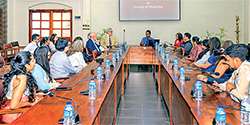
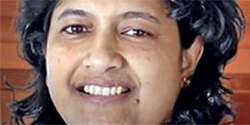


















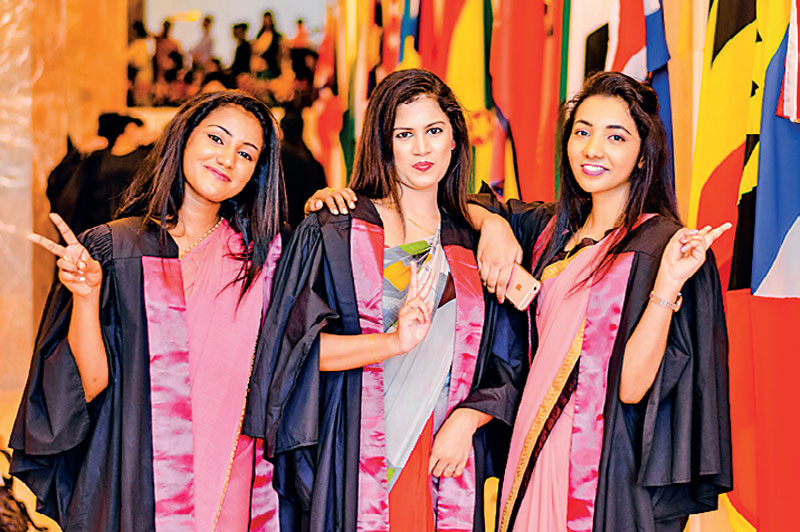

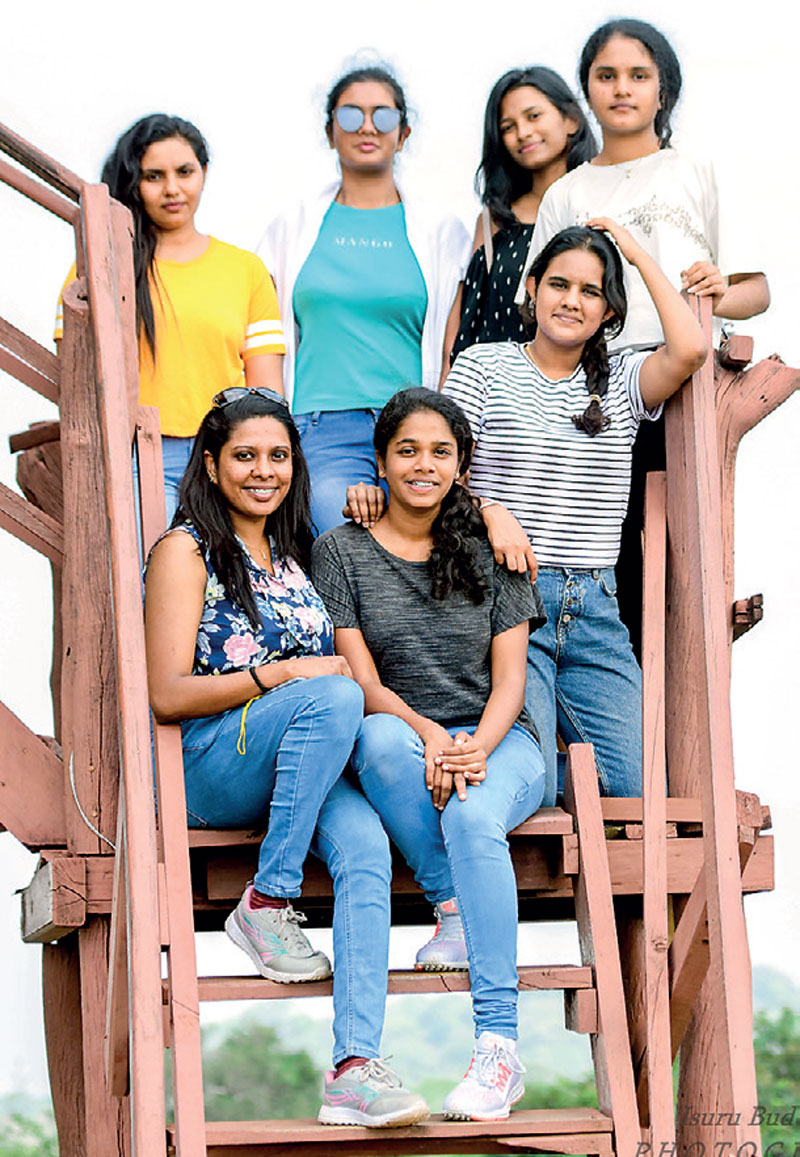
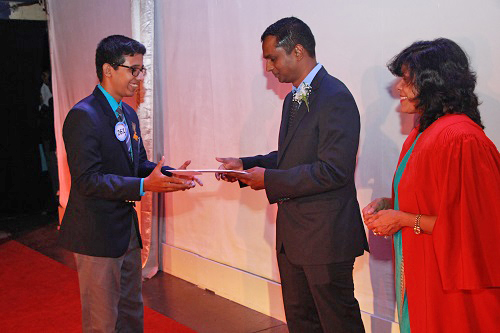

.jpg)

.jpg)
.jpg)
.jpg)
.jpg)
